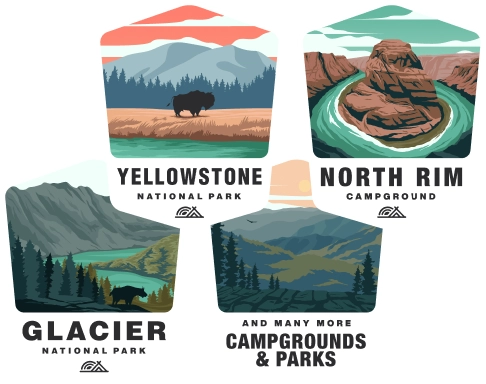Camping at Bluestone Lake State Park
Overview of Bluestone Lake State Park
Bluestone Lake State Park, located in West Virginia, is a popular destination for outdoor enthusiasts. The park encompasses a large area around the Bluestone River, and the lake itself is known for being one of the largest bodies of water in the state, offering various recreational activities.
Camping Information
Facilities and Campsites Bluestone Lake State Park provides several camping options, from RV sites with electrical hookups to primitive tent sites for a more rustic experience. The park's facilities typically include restrooms with showers, a dump station for RVs, and potable water access. Visitors should check the current status of facilities before their trip as amenities may vary or be affected by seasonal changes.
Reservations and Fees Camping spots can often be reserved in advance, and it's recommended to do so, especially during peak seasons. The camping fees may vary based on the location, type of site, and amenities provided. It's wise to look for the most up-to-date information on fees and reservation processes by visiting the park's official website or contacting the park's management.
Camping Season The camping season at Bluestone Lake State Park can span from early spring to late fall, although dates may change annually based on weather conditions. Some campsites may be available year-round, but it's important to confirm current operational dates before planning your trip.
Activities and Recreation
Boating and Fishing With the expansive Bluestone Lake at its heart, the park is a prime location for boating and fishing. Boat launches are available, and the lake is well-stocked with a variety of fish species, including bass, crappie, catfish, and bluegill. Fishing licenses are required for anglers over a certain age.
Hiking and Wildlife Bluestone Lake State Park offers trails for hiking and nature exploration. These trails often provide opportunities to observe the local wildlife and enjoy the scenic beauty of the West Virginian wilderness.
Water Sports and Swimming While there might not be a designated swimming beach at the park, visitors can enjoy other water-based activities such as water skiing, wakeboarding, canoeing, and kayaking, depending on the park's regulations and conditions.
Rules and Regulations
Fire Safety and Campfires Campers should adhere to all fire safety rules, which typically include using designated fire rings, never leaving fires unattended, and extinguishing fires completely before leaving the site or going to sleep.
Wildlife and Environment To preserve the park's natural state, it is important to respect the wildlife, which means not feeding animals, maintaining a safe distance, and following a leave-no-trace principle to minimize environmental impact.
Pets Pets are often welcome in state parks but must be kept on a leash and under control at all times. Owners are responsible for cleaning up after their pets.
Alcohol and Noise Restrictions There may be restrictions on alcohol consumption within the park and quiet hours are usually enforced to ensure a peaceful environment for all campers.
Visitors should always check for the latest information and any temporary restrictions or advisories before their trip. This can be done by visiting the park's official website, contacting the park directly, or checking local news outlets for updates.
